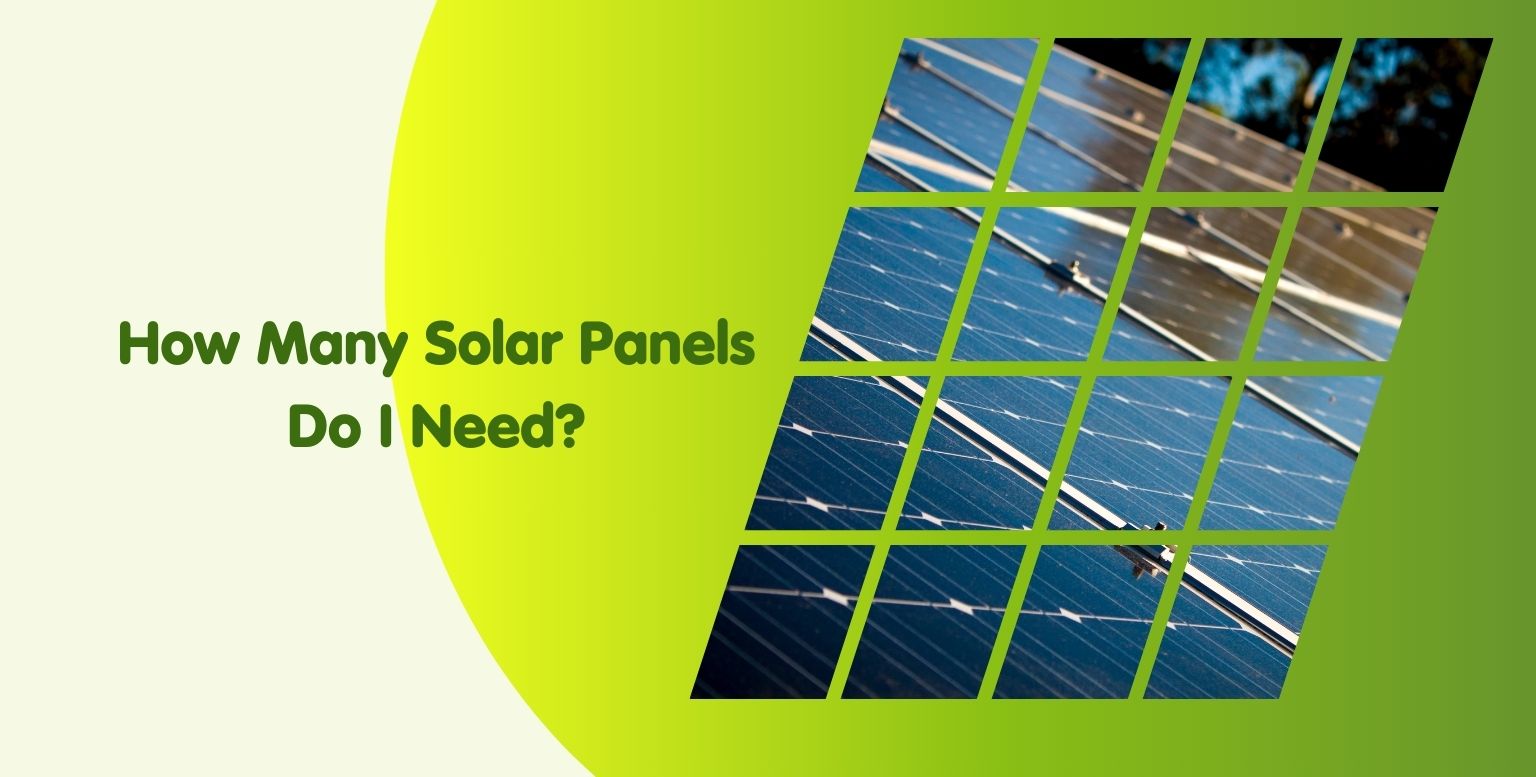Your basket is currently empty!
Written by
How Many Solar Panels Do I Need for My House – Calculator

At Green Central, we’re passionate about helping UK homeowners harness solar energy with tailored solar panel installations.
Figuring out how many solar panels you need for your home is straightforward when you consider your energy use, your home’s location, and your roof’s setup.
This easy-to-follow guide, crafted by our expert team, uses clear calculations and data to help you size your solar panel system for maximum savings and efficiency.
Solar Panels Required by Home Size
| Home Size | Energy Needs (with Buffer) | Panels Needed (400W) | Roof Space Needed (2 m²/panel) |
|---|---|---|---|
| 1–2 Bedroom | 2,250 kWh | 7–8 panels | 14–16 m² |
| 2–3 Bedroom | 3,375 kWh | 10–12 panels | 20–24 m² |
| 4–5 Bedroom | 5,375 kWh | 16–18 panels | 32–36 m² |
How to Calculate Your Solar Panel Needs
Step 1: Check Your Energy Usage
Look at your electricity bills to find your annual energy use in kilowatt-hours (kWh). Here’s what typical UK homes use:
- 1–2 bedroom homes (1–2 people): ~1,800 kWh/year
- 2–3 bedroom homes (2–3 people): ~2,700 kWh/year
- 4–5 bedroom homes (4+ people): ~4,300 kWh/year
To be safe, we add a 25% buffer for cloudy days or inefficiencies. For example, a 2–3 bedroom home using 2,700 kWh/year needs:
2,700 × 1.25 = 3,375 kWh/year.
Step 2: Know Your Panel’s Power Output
A standard 400W solar panel produces around 300 kWh per year in the UK. This varies by location:
- Southern England (e.g., London): ~350 kWh/year due to more sunlight.
- Northern Scotland: ~265 kWh/year due to less sunlight.
We only use the best solar panels in the UK to ensure all year round free energy for everyone!
Step 3: Work Out the Number of Panels
Divide your buffered energy needs by the panel’s annual output. For a 2–3 bedroom home:
3,375 ÷ 300 = ~12 panels.
In sunnier southern England, you might need only 10 panels (3,375 ÷ 350). In northern Scotland, it could be 13 panels (3,375 ÷ 265).
Does Your Roof Work for Solar?
At Green Central, we assess your roof to ensure it’s perfect for solar:
- A typical 4 kW system (10–12 panels) needs about 20–24 m² of roof space. Most UK homes (e.g., 70 m² roofs for 3-bedroom houses) can easily fit this.
- South-facing roofs capture the most sunlight. East or west-facing roofs produce 15–30% less energy.
- A 30–40° tilt solar panel angle is best for UK sunlight.
- Trees or chimneys can reduce output, but our advanced microinverters help panels work efficiently even with partial shade.
What Affects the Number of Panels?
- Our high-quality monocrystalline panels (17–24% efficiency) generate more power, so you may need fewer. For example, a 450W panel produces ~366 kWh/year compared to ~265 kWh/year for a 350W panel.
- Our modern inverters convert panel energy efficiently, ensuring you get the most from each panel, especially on tricky roofs.
- Energy Goals are important if you want to cover all your electricity or just part of it? We’ll tailor your system to match your needs.
Why Choose Solar with Green Central?
At Green Central, we’re MCS-accredited installers with years of experience across the UK. We make going solar simple:
- Free Site Surveys mean we check your roof and energy needs to recommend the perfect system.
- Financial Savings are possible with a 4 kW system for example (£7,000–£10,000) saves £550–£800/year on bills, with a payback period of 8–15 years.
- Government Incentives mean you can benefit from 0% VAT (until 2027, saving ~£2,850) and the Smart Export Guarantee (earn 4–15p/kWh for excess energy).
- We offer great solar panel finance deals too which mean you can buy now and pay later!
Summary
At Green Central, we help you determine how many solar panels you need based on your energy use, roof, and location. A typical 2–3 bedroom UK home needs 10–12 panels, while larger homes may need 16–18.
Our high-efficiency panels and expert installation ensure you get the most power and savings. Ready to go solar? Contact Green Central for a complimentary solar panel quote or use our online solar calculator to begin planning your sustainable future today!
Written by
Start Your Solar PANEL Project Today
Buy 1 get 1 FREE Solar Panels With Installation!
Solar Finance Options & Price Match Too!





